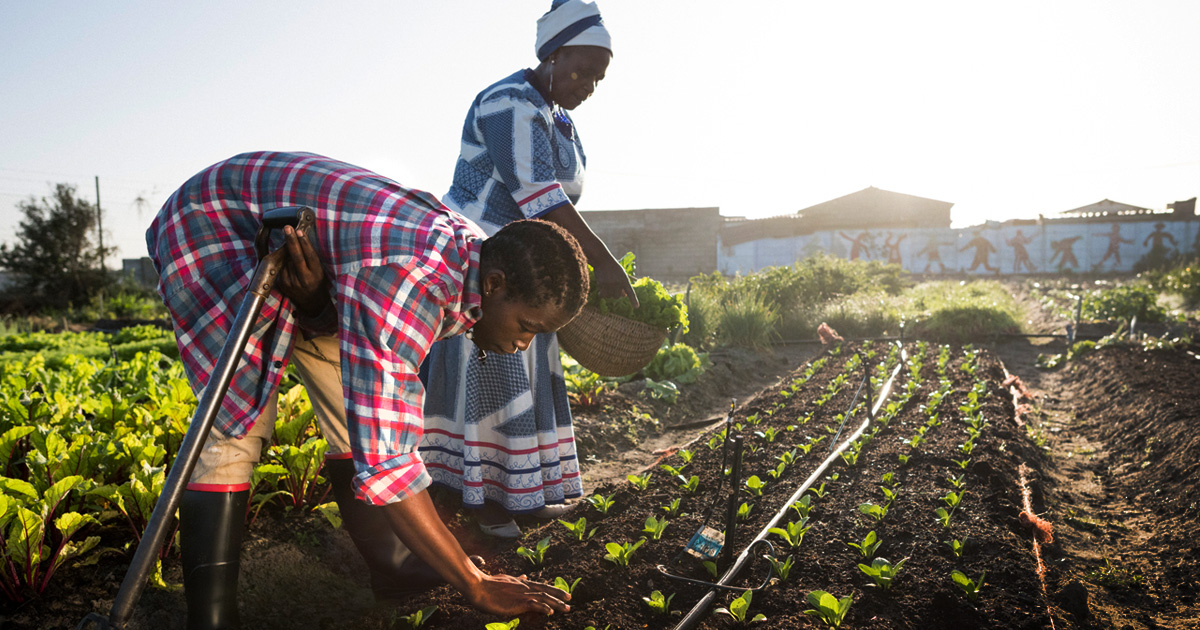Mathematica announced today that it will begin its work to support AGRA in implementing its monitoring, evaluation, and learning (MEL) strategy that the two organizations previously co-developed. From now into mid-2024, Mathematica will assist AGRA in carrying out baseline surveys across its focus countries, setting baseline values, and finalizing review of performance targets that will inform and support the implementation of AGRA’s updated 2023-2027 strategy, AGRA 3.0. This strategy aims to “catalyze the growth of sustainable food systems across Africa” that support smallholder farmers—particularly women and youth—to strengthen their resilience to climate change and boost their income, food security, and job opportunities.
“To determine whether AGRA achieves the goals stated in its updated strategy, it’s necessary to first establish the current state of play,” said Tulika Narayan, vice president, Mathematica. “Mathematica’s deep agricultural sector expertise and strong track record as a full-service MEL partner help us to generate the reliable evidence needed to gain that understanding. We look forward to launching this baseline work with AGRA to help them build a strong foundation for enhancing sustainable agriculture practices throughout sub-Saharan Africa.”
To set baseline values, Mathematica will validate data about outcomes such as seed supply, extension reach, and regulatory reports from a broad range of secondary sources comprising the Comprehensive Africa Agriculture Development Programme; Food and Agriculture Organization data; and administrative data on agricultural spending, reforms, and more. When secondary data are not available, Mathematica and its partners will administer structured surveys to key players in the regional food system, including smallholder farmers and owners of small- and medium-sized enterprises, as well as agricultural entrepreneurs. This includes large in-person surveys of farmers in AGRA-supported areas across five selected countries where AGRA has geographically focused work and where Mathematica can identify valid counterfactual areas to serve as a comparison group for the impact evaluations. Mathematica researchers will also interview public authorities, entrepreneurs, and independent experts on the continent to help inform a baseline assessment of the various seed, last-mile delivery, and market systems in which AGRA plans to invest.
These activities will culminate in a series of systems analyses, heatmaps, and interactive dashboards designed to put insights into the hands of AGRA leadership, country teams, and MEL staff. These upcoming baseline studies build on a sequential set of MEL and knowledge management work that Mathematica has already delivered to AGRA as a technical assistance partner. Mathematica provided comprehensive support to help AGRA develop the central MEL plan associated with its AGRA 3.0 strategy, which included a detailed results framework and learning agenda.
"This partnership with Mathematica reinforces our commitment and shared dedication to building rigor and evidence-based capacities in measuring the impact of our investments and work in pursuit of shaping resilient food systems for smallholder farmers,” said Aggie Konde, Director, Communications, Advocacy and External Engagement, AGRA. “We are excited to deepen our work with Mathematica as our MEL partner and look forward to launching the baseline studies."
Contact
-
Colleen Psomas
cpsomas@mathematica-mpr.com
202-484-4686 ext. 25686


